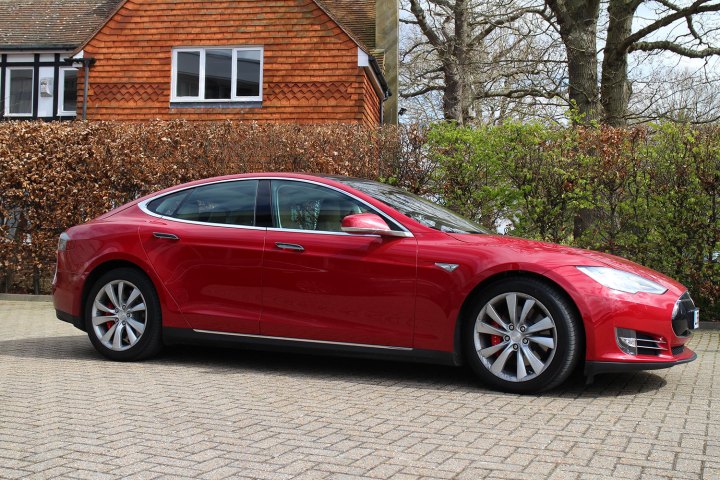
It’s not an investigation or recall by the National Highway Traffic Safety Administration, but a review, which is when the agency gathers information to see if further inquiry potentially leading to a safety defect recall is required.
Car website Daily Kanban listed part of a letter it found on a Tesla fan website that was reportedly sent to a Tesla customer whose Model S had a broken suspension control arm. According to the website, Tesla offered to split the $3,100 cost of the repair as a goodwill gesture if the owner agreed to keep it confidential and sign a Goodwill Agreement. Part of the agreement reads, “The Goodwill is being provided to you without any admission of liability or wrongdoing or acceptance of any facts by Tesla, and shall not be treated as or considered evidence of Tesla’s liability with respect to any claim or incidents. You agree to keep confidential our provision of the Goodwill, the terms of this agreement and the incidents or claims leading or related to our provision of the Goodwill.”
Agency spokesperson Bryan Thomas said the NHTSA is “examining the potential suspension issue on the Tesla Model S, and is seeking additional information from vehicle owners and the company.” According to Reuters, NHTSA Administrator Mark Rosekind also said:, “Part of what we have to figure out is whether or not (nondisclosure agreements) might have impeded people making (complaints). Our folks were on this right away.” Rosekind said the agency has been in touch with Tesla.
The NHTSA also said it “learned of Tesla’s troublesome nondisclosure agreement last month. The agency immediately informed Tesla that any language implying that consumers should not contact the agency regarding safety concerns is unacceptable, and NHTSA expects Tesla to eliminate any such language.” Tesla, the agency said, “told NHTSA that it was not their intention to dissuade consumers from contacting the agency.” A Tesla spokesperson confirmed that Tesla had been contacted by the NHTSA and the company was looking into the NHTSA’s statement.
Updated on 6-11-16 by Bruce Brown: The NHTSA has found no defects in Tesla Model S suspension and is satisfied that Tesla has clarified the language in nondisclosure agreements resolving the issue. Tesla’s Elon Musk said that 37 of 40 suspension complaints filed with the NHTSA were “fraudulent.”
Article originally published on 06-10-2016.



